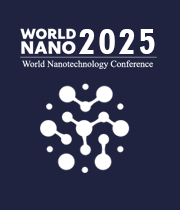Title : Boron-doped alginate carbon-nanogels exhibits superior anti-metastatic effect on breast cancer by cell cycle arrest and actin dysfunction
Abstract:
Background: Metastasis is widely recognized as the primary contributor to mortality in cancer-related cases; however, the precise mechanisms responsible for this phenomenon have yet to be fully elucidated. The potential of natural compounds, particularly polysaccharides and polyphenols, as medicines with anti-tumor and anti-metastasis effects have attracted increasing attention in recent years. Therapeutic efficacy may be improved by the use of nanomaterials that can be controlled and used as delivery systems. In our findings, we employed boron-doped alginate carbon nanogels Bor(5)/Alg-240-CNGs that demonstrate a higher degree of efficacy in suppressing the migration and invasion of cancer cells in triple-negative breast cancer (TNBC).
Methods: Migration assays, invasion assays, cell attachment assays, microcolony analyses, and cell cycle analyses are used to assess the anti-metastatic properties of Bor(5)/Alg-240-CNGs in vitro. Different types of breast cancer cells and normal cells were tested for their sensitivity to Bor(5)/Alg-240-CNGs in order to learn more about their biocompatibility. The DCFH-DA assay and apoptosis analysis were then performed to examine anti-cancer activity further. In vivo, these nanomaterials were used to cure 4T1-induced tumors in BALB/c mice. Finally, transcriptomics and proteomics analysis provided much-needed insight into how exactly these nanomaterials produce their anti-metastatic actions.
Results: In our findings, we employed Bor(5)/Alg-240-CNGs that demonstrate a higher degree of efficacy in suppressing the migration and invasion of cancer cells in TNBC and also TNBC-dependent cell cytotoxicity due to ROS-induced apoptosis. Further in vitro mechanisms show Bor(5)/Alg-240-CNGs induce cell cycle arrest and F-actin disorganization which is an essential factor for paralyzing migration. In the in vivo study, therapy with Bor(5)/Alg-240-CNGs resulted in an 86.16 % decrease in the number of metastatic lung nodules compared to the untreated group. The overall mechanism was further validated using proteomics.
Conclusions: Finally, Bor(5)/Alg-240-CNGs have the potential to be a cost-effective, inventive, and unique nanodrug with many targets for cancer treatment.


